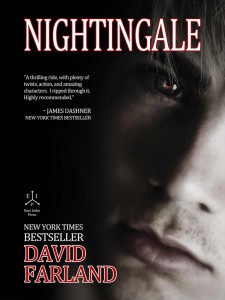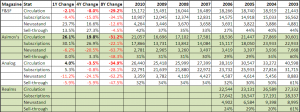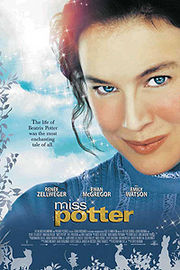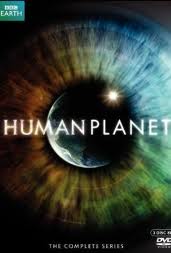 David Farland has been a big influence on me. It was his workshop back in the 90’s that actually made me think I could write professionally and led directly to my first publication as a Writers of the Future winner. Later Dave gave me comments on my first novel which helped me write a second, much better one that attracted Tor Books. And it was Dave who showed me the ropes on my first ever author tour.
David Farland has been a big influence on me. It was his workshop back in the 90’s that actually made me think I could write professionally and led directly to my first publication as a Writers of the Future winner. Later Dave gave me comments on my first novel which helped me write a second, much better one that attracted Tor Books. And it was Dave who showed me the ropes on my first ever author tour.
But long before all that, Dave was a writer whose work I loved. I read ON MY WAY TO PARADISE when it first came out and enjoyed the heck out of it. SERPENT CATCH and PATH OF THE HERO were next. I gobbeled them up too. Then came the THE GOLDEN QUEEN. By the way, SERPENT CATCH and THE GOLDEN QUEEN are two of my favorite novels. Now, all of those were written under Dave’s given name–Dave Wolverton. When he switched over to fantasy he used the Farland pseudonym. His first Farland book was RUNELORDS. Folks, RUNELORDS is, in my opinion, one of the top 10 epic fantasies ever written. Ever.
Of course, Dave has written many other novels and was involved with some Hollywood producers. Now he’s doing something new. He’s started his own publishing company–East India Press–and is releasing the first of his enhanced books through it. Enhanced meaning far more than a book in print or electronic form–there’s also a soundtrack and art. NIGHTINGALE is that book. I asked him to share with my readers a bit more about it. Here’s his reply.
*
JOHN: Tell us about how you came up with the idea for Nightingale?
DAVE: Years ago, in the late 1980s or early 1990s, I read a book by a doctor who had worked for the CIA, experimenting with drugs that would erase both long- and short-term memories. It was fascinating work, and he eventually won the Nobel Prize for it. So I became interested in memory transfer.
Later on, one Christmas, I got to thinking about the three “Wise Men” from the bible. Normally, a “wise man” is called a wizard. A “maji” is called a magician. Why was it that the writers of the bible were using double-speak when discussing these guys? Weren’t they astrologers? Doesn’t the Old Testament condemn these folks to death?
So I went back to the Hebrew and found out that indeed these three gentlemen were in the same class of magicians that the Old Testament condemned to death, the m’khashepah—which originally referred to a class of magicians that hung around royal courts. Of them the bible says, “Thou shalt not suffer a m’khashepah to live.”
So the thought occurred to me, “What if they weren’t just coming to give Jesus gifts? What if they really had come to be . . . advisors. What if they wanted to give him wisdom?”
That started a whole train of thought dealing with memory transfer—transfer of memories, the possibility of training reflexes, transfer of memories on a cellular level, and so on—which led to the creation of my magic system.
The questions arose, what would people do with such power?
And of course from that a novel was born.
Nightingale tells the story of a young man named Bron Jones, who is abandoned at birth. Raised in foster care, he’s shuffled from home to home. At age 16, he’s kind of the ultimate loner, until he’s sent to a new foster home and meets Olivia, a marvelous teacher, who recognizes that Bron is something special, something that her people call a “Nightingale,” a creature that is not quite human.
Suddenly epic forces combine to claim Bron, and he must fight to keep from getting ripped away from the only home, family, and girlfriend that he has ever known. He must risk his life to learn the answers to the mysteries of his birth: “What am I? Where did I come from? Who am I?”
This is a big project, an enhanced novel with illustrations and animations from half a dozen talented illustrators. It has a sound track by the head of the National Composer’s Guild, James Guymon, with a dozen professional musicians and vocalists. We’re releasing the novel in several formats, as an enhanced novel, a normal e-book, an audiobook, and as a hardcover.
But we did one last cool thing. The enhanced book was designed for the iPad, though you will also be able to read it on just about any other pad or smartphone. But we had our programmers create a web app so that you can enjoy the book on your computer—read a few chapters, take it for a test drive, or simply buy it for reading online. You’re free to go check out the results at www.nightingalenovel.com. If you like it, remember to “Like” us on Facebook. Better yet, re-post our site info and tell your friends on Facebook.
Oh, and while you’re there, check out our short-story contest, where you can win $1000.
*
John sez: I’m very excited to see where this goes. I’ve loved Dave’s stories for a long time. And the premise of this book sounds great. Samples are available at: www.nightingalenovel.com




















